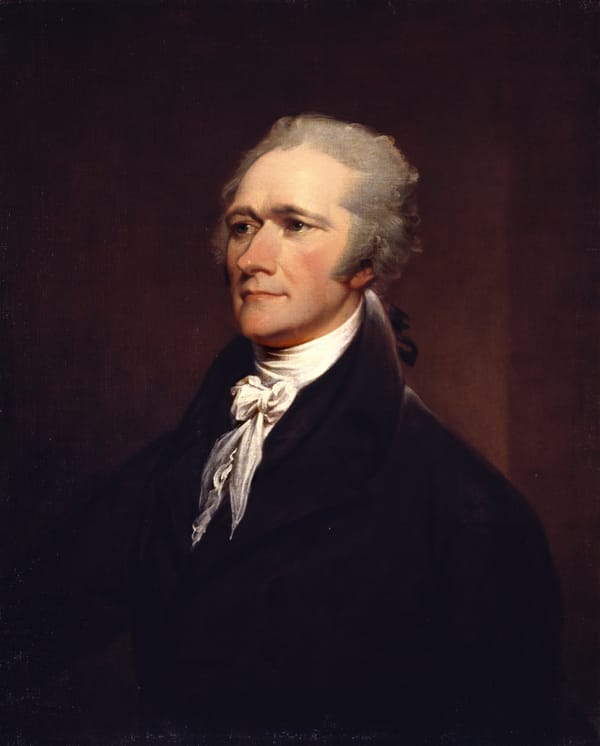Invading Greenland Would Be Illegal

Okay fine, I'll start.
Last night I said on Bluesky that I want to see people laying the foundation, in the public discourse, for the idea that if and when Trump orders the military to go invade Greenland – because apparently he is quite serious about this whole "annexing Greenland" thing – it would be an illegal order that the military should not obey. Then I thought, why not me? I know I said I would mostly not be engaging with day-to-day Trump II constitutional controversies on here, on account of how I expect them to all be really dumb and pointless. This one is also dumb and pointless! But insofar as talking about it could potentially make a difference to what happens, it's worth a shot.
I should say at the outset that I am not, here, talking about whether invading Greenland would violate international law. Partly that's because I'm not much of an expert on international law, partly it's because that seems even more obvious to me, and partly it's because it's at best debatable whether the military ought to refuse an order that violates only international law, not domestic law. The claim I want to advance is the more specific one: that Trump is without power, under our Constitution, to order an invasion of Greenland.
Also, I am assuming for purposes of this piece that Congress does not take any new actions to authorize going to war over Greenland.
In order to tell whether this hypothetical order would be illegal, we need to know what the governing law is. Here are the relevant constitutional provisions:
Article I, Section 8:
The Congress shall have power ... To define and punish Piracies and Felonies committed on the high Seas, and Offences against the Law of Nations;
To declare War, grant Letters of Marque and Reprisal, and make Rules concerning Captures on Land and Water;
To raise and support Armies, but no Appropriation of Money to that Use shall be for a longer Term than two Years;
To provide and maintain a Navy;
To make Rules for the Government and Regulation of the land and naval Forces;
To provide for calling forth the Militia to execute the Laws of the Union, suppress Insurrections and repel Invasions;
To provide for organizing, arming, and disciplining, the Militia, and for governing such Part of them as may be employed in the Service of the United States, reserving to the States respectively, the Appointment of the Officers, and the Authority of training the Militia according to the discipline prescribed by Congress...
Article II, Section 2:
The President shall be Commander in Chief of the Army and Navy of the United States, and of the Militia of the several States, when called into the actual Service of the United States...
You'll note that there's a lot of text about Congress's power over military affairs, and only one fairly open-ended clause about the president's role. Nonetheless, the Commander-in-Chief power has been understood quite broadly over the years, and certainly affords the president at least some measure of authority with which Congress cannot interfere.
You will also note that one of the clauses in Article I, Section 8 gives Congress the power to "declare war." A lot of antiwar liberals have argued, in the eighty years since the last formal declaration of war (World War Two, in case you're wondering), that this means the president can never initiate military action without a congressional declaration. This was how a lot of us said the Iraq War was illegal.
It's almost certainly wrong, at least as applied to something like an "authorization for the use of military force," or AUMF. In any other domain, liberal-minded jurists would be insisting that the Constitution does not require Congress to use magic words. I quite dislike war myself, but I also can't deny that one of the things the Constitution is meant to do is create an effective war-making machine. Thus, I cannot fail to apply the same "it's supposed to work" ethos to the war powers that I would to any other constitutional provisions. When Congress passes a resolution authorizing the use of military force against X, it's difficult to argue that the president has not thereby been authorized to use military force against X.
Moreover, "declare war" has an old-fashioned international law meaning: to declare war is to create a certain diplomatic state between the belligerents. To declare war is not the same thing as to make war, and the former has not been understood as a necessary predicate for the latter. Typically a declaration would happen after hostilities were already underway.
My favorite explication of the constitutional war powers scheme comes, unsurprisingly, from Philip Bobbitt. If you are interested in this stuff and you haven't seen that essay of his before, go read it now. Bobbitt's basic point, as I understand it, goes something like this: making war is not an enumerated power of any branch of government. Rather, it is something that Congress and the executive do together, employing their various enumerated powers toward a common end. Broadly speaking, Congress's role is to create the military might, and the president's role is to use the toys Congress has given them.
This is not to say, however, that the president may use those toys however they see fit and Congress can't do anything about it. To take the limit case, Congress has the power of the purse, and it could use that power to expressly forbid the president from spending funds on a particular military venture. This possibility was in the air back in Vietnam: Congress could have, if it had wanted to, simply defunded the war after a certain date. There is no reason to think that Congress cannot, in the course of creating the federal military, authorize the president to use the military for certain purposes and not others.
What Bobbitt suggests, largely in the context of the Gulf War, is that we should not be overly formalistic in looking for congressional authorization. Thus he writes that
It is ridiculous to pretend shock that, for example, helicopters designed for desert warfare in case of an attack on the Arabian Peninsula are actually going to be deployed against Iraqi forces that have invaded Kuwait.
Where this leaves us is basically just the Youngstown framework. For those who do not have Robert Jackson's doctrine committed to memory:
1. When the President acts pursuant to an express or implied authorization of Congress, his authority is at its maximum, for it includes all that he possesses in his own right plus all that Congress can delegate. In these circumstances, and in these only, may he be said (for what it may be worth) to personify the federal sovereignty. If his act is held unconstitutional under these circumstances, it usually means that the Federal Government, as an undivided whole, lacks power. A seizure executed by the President pursuant to an Act of Congress would be supported by the strongest of presumptions and the widest latitude of judicial interpretation, and the burden of persuasion would rest heavily upon any who might attack it.
2. When the President acts in absence of either a congressional grant or denial of authority, he can only rely upon his own independent powers, but there is a zone of twilight in which he and Congress may have concurrent authority, or in which its distribution is uncertain. Therefore, congressional inertia, indifference or quiescence may sometimes, at least, as a practical matter, enable, if not invite, measures on independent presidential responsibility. In this area, any actual test of power is likely to depend on the imperatives of events and contemporary imponderables, rather than on abstract theories of law.
3. When the President takes measures incompatible with the expressed or implied will of Congress, his power is at its lowest ebb, for then he can rely only upon his own constitutional powers minus any constitutional powers of Congress over the matter. Courts can sustain exclusive presidential control in such a case only by disabling the Congress from acting upon the subject. Presidential claim to a power at once so conclusive and preclusive must be scrutinized with caution, for what is at stake is the equilibrium established by our constitutional system.
Presidential warmaking will usually be lawful, then, in the first category. It will also often be lawful in the second category, where "congressional inertia, indifference or quiescence" may be tantamount to authorization. This is Bobbitt's point about the helicopters. But neither does the president have an "independent" power to make war. To the extent that "zone of twilight" warmaking is lawful, it will only be because Congress can be understood to have implicitly authorized it. And, a fortiori, the president cannot make war when doing so is "incompatible with the express or implied will of Congress."
Into which of these categories, then, would Trump's invasion of Greenland fall? I think it is clear enough that the answer is Category Three. Here it matters that Denmark is a NATO treaty ally, not directly as a matter of international law but because it can be inferred that Congress does not intend our military assets to be turned against our treaty allies. Moreover, I am aware of no appropriations made with anything like the intent to get into a fight over Greenland. I am open to correction on this point, but my sense of the matter is that one could scour the entirety of the Congressional Record from 1789 to the present and not find a single shred of authorization, express or implicit, for this operation.
In order to hold that Trump has the lawful authority to order an invasion of Greenland, then, you must hold that the president is always authorized to use our military arsenal against any country at all, that Congress has no choice but to authorize this when it creates that arsenal. This does not seem to me a plausible reading of the constitutional scheme. It is, however, entirely consistent with the constitutional vision that Trump's executive actions in the first week of his rule have articulated, a vision best captured by an old German theory of administration called the Führerprinzip.
Note that Bobbitt's framework is already quite deferential to presidential action in this sphere. And while he does allude to the prospect that "presidents can simply ransack the current Defense Appropriations Act for available forces and that Congress then has no way to stop a president from unilaterally making war so long as one-third plus one of the members of one House sustains his veto," this is by no means a denial of congressional authority to limit the president. To the contrary, it expressly recognizes that Congress has this power; the difficulty is only that the presidential veto may make it difficult to use that power against a sitting president. But there is no need for Congress to take new action to limit Trump if it has done nothing previously that could be understood as empowering him in the first place. I see no more reason why Congress needs to use magic words to forbid military action than to authorize it.
To be sure, I would like to see Congress take new action to limit Trump here. This would, among other things, help with the "rule of recognition" issue. I imagine that military leaders would feel far more comfortable refusing an order to invade Greenland if Congress had recently passed a joint resolution stating that it has not authorized and does not authorize such an invasion. But I am not going to hold my breath on that one, and I do not think it is actually necessary in order for us to conclude that such an order would be unlawful.

